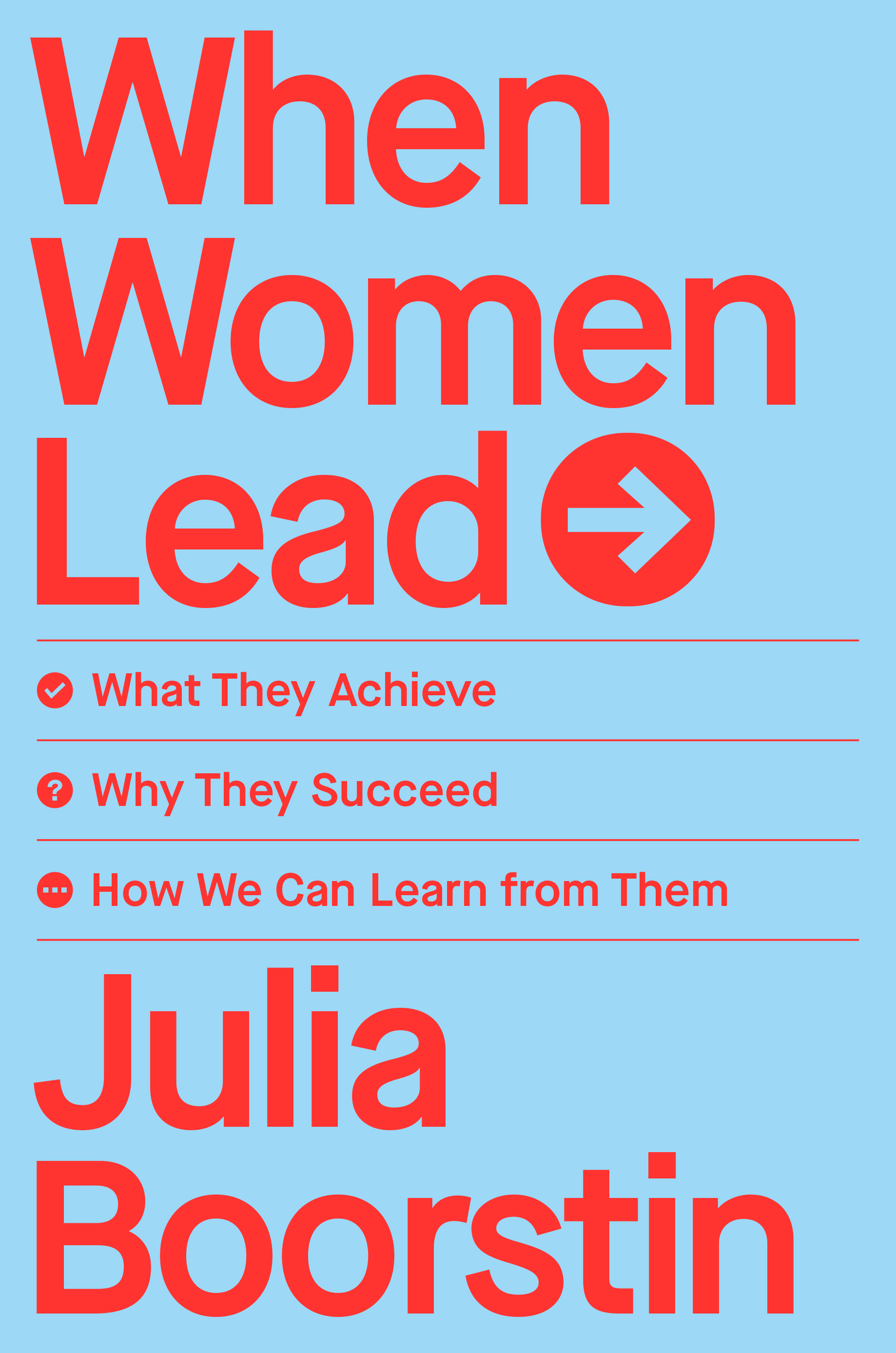I spent most of my career as a business journalist with the overwhelming feeling that if I wanted to succeed at work, my identity outside of work had to take a back seat–it would only keep me from getting ahead. I assumed that the responsibilities that come from being a mom or a hobby that consumed a lot of time would be a distraction for me and for my bosses, would detract from my abilities. But in fact, I found in interviewing 120 women leaders for my new book WHEN WOMEN LEAD, that they share a surprising (and somewhat counterintuitive) trait. They possess strong and secure identities outside of work. And I found this also was true in my own experience–when I became a mom and developed that identity, it may have been a drain on my time and sleep, but it bolstered my confidence at work.
For the first decade of my career as a journalist I was convinced that my personal life was only going to detract from my ability to succeed at work. I kept my personal life separate–and tried not to think about it, and certainly not talk about it, in the office. After I had a baby I returned to my job as a reporter at CNBC with my breast pump in tow–ignoring my personal life at work wasn’t logistically an option (I was pumping every 3 hours). It also didn’t feel right–I wanted to share stories and photos of my baby with my colleagues. And as I started to open up about things like needing to leave early for pediatrician appointments I started to feel differently about that role of being a working mom. In fact, I started to feel stronger and more resilient at work, not despite the new demand on my time and attention, but because of it.
However sleep deprived I was, it became something of a comfort to know that whatever small indignities befell my workplace self, there was another identity–of mom–that I could retreat to back at home. My growing family was the most important thing in my life, so the minutiae didn’t distract me or stress me out as much. I wasn’t as intimidated by my bosses or my interview subjects or distracted (or bothered) by the day-to-day minutiae at work because those stakes felt smaller in comparison to the family I was building at home. Plus, with new priorities and time constraints I focused my attention at work on the most important things–how to be most effective, efficient, and accomplish really meaningful work in the time I was there. I’d never been so productive or intentional about the stories I pitched, how I connected with sources, and wrote my scripts. And so my first year back from maternity leave was my most productive at CNBC up until that point–in addition to writing my daily TV scripts I reported a documentary on the future of television and started creating CNBC’s annual Disruptor 50 list.
In fact as I write about in WHEN WOMEN LEAD, there is real value in having strong identities outside of work–and it’s not just about motherhood. I know many successful professional women that started to succeed more at work when they invested more time outside of it in serious, time-consuming hobbies– everything from marathon running to salsa dancing, and pottery to sailing.
And the data proves it: Stanford professors found that people were more resilient in the face of stressors when they were able to reflect on other, unrelated parts of their life, such as family, cultural identity, or even allegiance to a sports team. This is found to be particularly valuable when facing challenges or rejection at work. The professors found in a study called “The Psychology of Self-Defense: Self-Affirmation Theory,” that when people faced criticism at work and they reflected on an unrelated part of their life, such as their family, cultural identity, or even allegiance to a sports team, they realized that their self-worth doesn’t hinge on that particular evaluation or immediate situation, and could respond to a threat in an evenhanded and open manner.
What the data and the personal anecdotes show me is that we need to see the time we spend outside of work–doing both the things we have to do and we love to do as being an investment in ourselves. At work, when we face criticism or critique, if we can have the strength and self-confidence in our own identity to not take it personally–that gives us the ability to take the valuable parts of the feedback to pivot and keep going and growing. Everyone is going to face criticism at some point at work–the ones that succeed are those that don’t let it get them down. The more you feel confident in who you are, the more you can understand at your core, it’s not personal–and use that criticism to improve on their work.
So instead of thinking about that time spent celebrating a family tradition, painting a canvas, or trying a complicated new recipe as something that’s keeping you from focusing on work, think of it as an opportunity to build yourself up as an employee who also happens to have a strong cultural identity or who is a great painter or chef. And with that strong multifaceted identity, you’ll be better equipped to pivot and rebound from professional setbacks.



